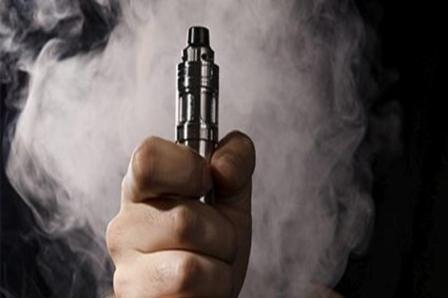
Parents who use both traditional and e-cigarettes may vape around kids at home and in cars even when they don’t smoke around their kids, a U.S. study suggests.
Big tobacco companies, including Altria Group Inc, Lorillard Tobacco Co and Reynolds American Inc, are all developing e-cigarettes. The battery-powered devices feature a glowing tip and a heating element that turns liquid nicotine and other flavorings into a cloud of vapor that users inhale. As in traditional cigarettes, the nicotine in e-cigarettes can be addictive.
Researchers interviewed 761 parents at five pediatric practices in Indiana, North Carolina, Ohio, Tennessee, and Virginia who were users of either traditional cigarettes or e-cigarettes, or both, and asked them whether they had smoke-free or vape-free policies at home and in their cars.
Most - 85 percent - used only regular cigarettes, while 4.5 percent used only e-cigarettes and 11 percent used both.
Two-thirds of “dual-users” said they didn’t allow smoking inside their homes, but only about one in four of them prohibited vaping in the house, the study found. Dual users were also more likely to smoke and vape in the car than other parents - and more likely to use e-cigarettes around their kids.
Parents were less likely to have smoke-free or vape-free home and car policies when they smoked at least about a half pack of cigarettes daily and when they had at least one child under 10 years old.
“Vaping devices are being heavily marketed as a safer alternative to smoking and many parents, who have decided to adhere to a no-smoking policy in the house, are making a different decision when it comes to vaping,” said lead study author Dr. Jeremy Drehmer of the Massachusetts General Hospital for Children in Boston.
“This finding raises the prospect that parents have been misled by the marketing of vaping devices and consider e-cigarette aerosol exposure safe for their children inside their homes,” Drehmer said by email.
Secondhand tobacco smoke exposure kills an estimated 41,000 adults and 400 infants in the U.S. each year, the researchers note in Pediatrics. Children who regularly inhale smoke fumes within their living environments have an increased risk of sudden unexplained deaths before 12 months of age as well as asthma, leukemia, and risk factors for diabetes and heart disease, previous research has found.
Even though some research suggests fumes from e-cigarettes may not be as dangerous as traditional cigarette smoke, studies also suggest that flavorings and other ingredients in e-liquids used for vaping could be linked to lung damage and serious breathing problems.
Kids are most likely to be harmed by exposure to e-cigarette vapors in enclosed spaces like cars and homes, which are also places where young children spend much of their time, the study authors note.
The study wasn’t a controlled experiment designed to prove whether or how dual users might be more apt to expose kids to secondhand cigarette smoke or e-cigarette vapor.
It’s possible parents are unaware they’re endangering their children, said Dr. Alexander Prokhorov, director of the youth and family cancer prevention program at the University of Texas MD Anderson Cancer Center in Houston.
“Neither designating a room for smoking nor ventilating the dwelling eliminates the dangerous exposure of nonsmokers in the household to second-hand smoke,” Prokhorov, who wasn’t involved in the study, said by email. “The only way to completely eliminate such an exposure is to adopt the unconditional tobacco-free indoor air policy in the household.”
“For parents, it is particularly important to know that there is no safe level of secondhand or third-hand smoke, and these both cause harm to their children,” Prokhorov added.
Third-hand smoke is what lingers on surfaces throughout the home or car even when parents aren’t currently vaping or smoking.
“Parents should not allow anyone to smoke or vape in their houses or cars,” said Stanton Glantz, director of the Center for Tobacco Control Research and Education at the University of California San Francisco.
“If they can’t quit, they should at least smoke outside away from their kids and other family members,” Glantz said by email.
Source: Reuters
 FR
FR EN
EN AR
AR








